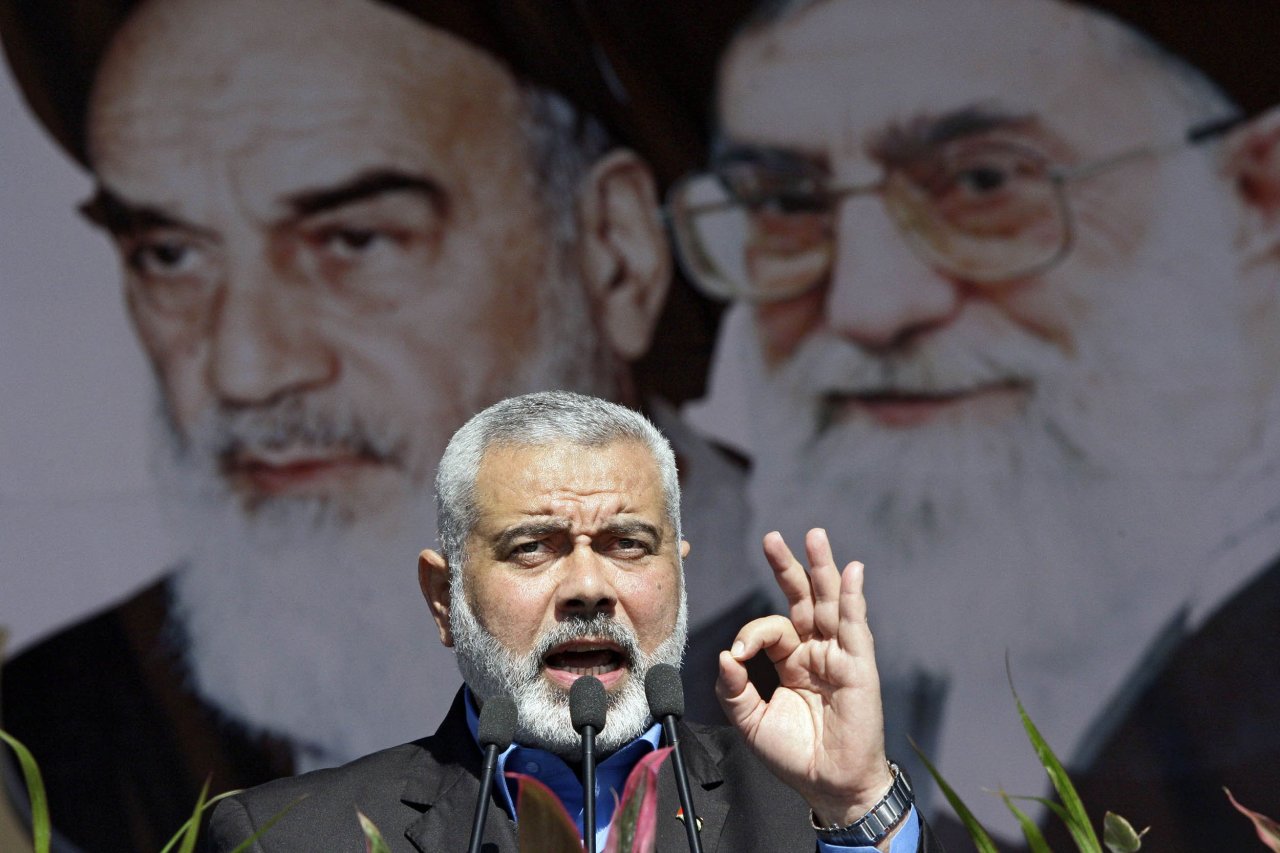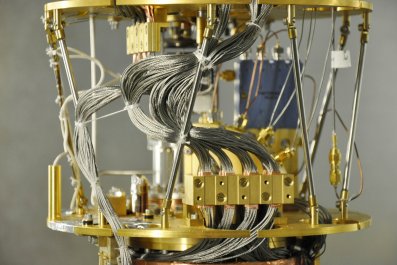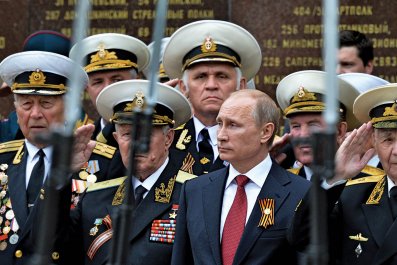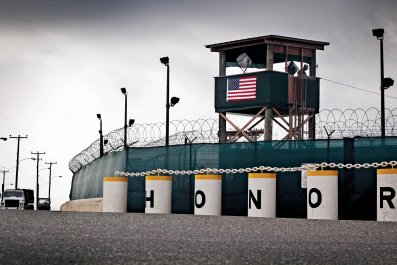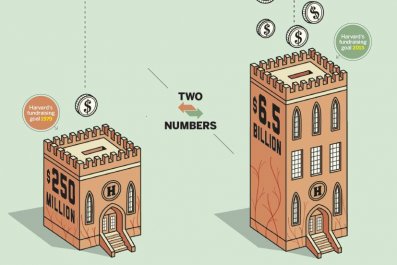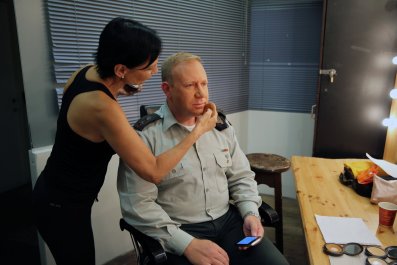The widespread turmoil across the Middle East is making for some very estranged fellows. After suffering a major blow during the civil war in Syria, the romance between Iran and Hamas is at full bloom again, boding ill for any hopes of future peaceful arrangements in the region.
Tehran has long been the top supplier of arms to Gaza militants Hamas, which like the Iranian government is a fundamentalist group that believes in spreading Islam and making it the law of the land in the Middle East and beyond. But while Iran is Islam's most dominant Shiite power, Hamas—an offshoot of the outlawed Egyptian-based Muslim Brotherhood—is part of a Sunni world that deems Shiism a heresy.
The civil war in Syria put the Hamas alliance with Iran to the test. It failed. By 2011 the political leadership of Hamas was forced out of Damascus, where it had set up home after it was expelled from pro-Western Jordan in 1991.
As the Syrian civil war progressed, the leader of the Hamas political bureau, Khaled Mashaal, tried to hedge his bets as long as possible. He had a tough decision to make: On one hand, President Bashar Assad was slaughtering the rebels, which were mostly fellow Sunnis; on the other, Assad's top backer, Iran, was Hamas's most-prized ally.
Mashaal finally came out in support of the Sunni rebellion. Soon after, he was forced to relocate from Damascus to his current residence, a luxury hotel in Doha, Qatar. The move was followed by a period of major friction with Iran. Hamas became ever more isolated from the rest of the Arab world, above all losing it major backer, Egypt, where the Muslim Brotherhood had been forced out of power. That isolation was a major factor leading to the war in Gaza.
As the war with Israel has intensified—with world leaders urging economic development in Gaza as an antidote to belligerence while America and Israel aim to demilitarize the Gaza Strip—Iran has reconciled with its old ally, Hamas. It has called on the world's Muslims to send weapons to Gaza, and also to the West Bank, where Iran would like to see the aggressively militant Hamas taking over from the more moderate Palestinian Authority, led by president Mahmoud Abbas, who has advocated a nonviolent approach to finding a permanent peaceful settlement with Israel.
As July came to a close, Iran's supreme leader, Ayatollah Ali Khamenei, defiantly proclaimed that he opposes President Barack Obama's "fatwa that would disarm the resistance, so that they cannot respond to [Israel's] crimes." And he made clear that Iran would stand by Hamas. "We say that the entire world, and in particular the world of Islam, is obliged to do everything in its ability to arm the people of Palestine," Khamenei said.
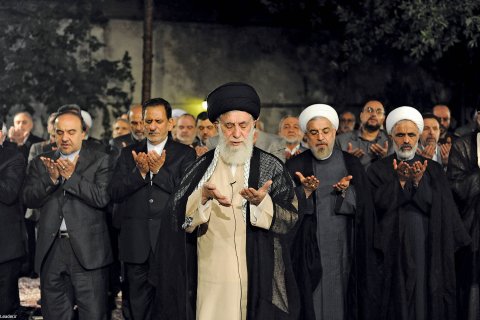
A top Iranian general, Major General Qassem Suleimani, the commander of the elite Quds force, then added his weight to the argument that Hamas should continue to be supplied with arms. "Confronting the Zionist enemy is a necessity and the Palestinian resistance movement will turn the land and skies into hell for the Zionists," Suleimani, who rarely makes public comments, told the Islamic Republic News Agency. He added that "disarmament of resistance is a daydream that will only come true in the graveyard" for Israel.
A United Nations ban on weapons exports from Iran has not stopped Tehran from arming its allies across the region. It backs a Shiite resurrection in neighboring Bahrain; it arms several groups that control territories in war-torn Yemen; it is a major influence on the Iraqi leadership, its army and some Iraqi militias; it arms the Islamist regime in Sudan; and Iran's own Lebanese-based proxy army, Hezbollah, is a dominant force in supporting Assad's efforts to stay in control in Syria. Meanwhile, Saudi Arabia, Iran's major competitor for Arab leadership in the region, is quietly battling Iranian-backed groups on its borders.
"We can go country by country in the region and talk about insurrections that are funded by Iran," says Representative Ed Royce, R-California, who chairs the House Foreign Relations Committee. Royce is seeking to add pressure on Tehran even as the Obama administration is trying to negotiate a deal designed to trade an easing of, and eventually completely removing, Iran's sanctions in exchange for assurances that it will abandon its advanced nuclear weapons program.
According to Royce, America needs to consider the ramifications of the easing of sanction far beyond the question of whether agreements over the nuclear-related issues are good or bad. "As you free up their hard currency through sanction relief, they will be able to do more to support Hamas, to do more to support Hezbollah," he says.
As demonstrated in a June report by a U.N. panel that enforces Iranian sanctions, Tehran goes to extraordinary lengths to circumvent the arms ban. The report spells out in detail what was found when a cargo ship, theKols-C, was intercepted by Israeli commandos on the Red Sea in March. It describes an elaborate scheme designed to hide the Iranian origin of the ship's cargo. The ship's sailed in a circuitous route, from Iran to Iraq, back to Iran and then to the Red Sea, where it was due to land in the Port of Sudan. After being tipped off of the true nature of the ship's cargo by their intelligence, the Israelis discovered 40 M-302 missiles, 181 122-millimeter mortars and 400,000 7.62-caliber bullets—all manufactured in Syria—hidden beneath crates containing legitimate cargo.
The U.N. report only hints at where the arms were destined for. But while the wording of the document was deliberately obscured for political reasons, Israeli officials say they know the arms were intended to be delivered to Islamist militants in Gaza.
If what the Israelis say is true, the lethal cargo may have been intended for the Palestinian Islamic Jihad, a rival group to Hamas that Israeli sources say has become Iran's favorite proxy in Gaza. But the war with Israel in Gaza appears to have caused a reconciliation between the mullahs in Tehran and Hamas. Iran's foreign minister, Javad Zarif, has widely advertised phone call he made on July 23 to Mashaal. Relations between Iran and Hamas are evidently on the mend.
"The Gaza War has been a gift to Khamenei," says Ali Alfoneh, an Iran researcher and a senior fellow at the Foundation for Defense of Democracy. "Ever since the outbreak of the civil war in Syria, Tehran has quietly labored to find a magic formula to secure the survival of the Assad regime while not alienating Palestinian Sunni militants," he said. Now that Tehran is more confident in Assad's future survival, it is looking to "rekindle relations with Hamas."
Hamas and the Muslim Brotherhood have long seen Iran as an ally, says Jonathan Halevi, a Canadian-based senior researcher of radical Islam at the Jerusalem Center for Public Affairs. "It started with Ayatollah Khamenei," Halevi said. Despite the Sunni-Shia divide, "the Muslim Brotherhood was enthusiastic about the Iranian revolution," in 1980.
Unlike other Sunni forces in the region, the Brotherhood and Hamas continue to foster an alliance with Iran. "It's not because they have no dispute with the Shiite world," says Halevi, "It's because they see Iran as a rising superpower." For its part, he adds, Iran sees Hamas as "cannon fodder" in its larger war against American interests in the region and against Israel.
Far in the future, both sides may consider themselves religious and ideological enemies. But for now, their marriage of convenience is alive and well.



